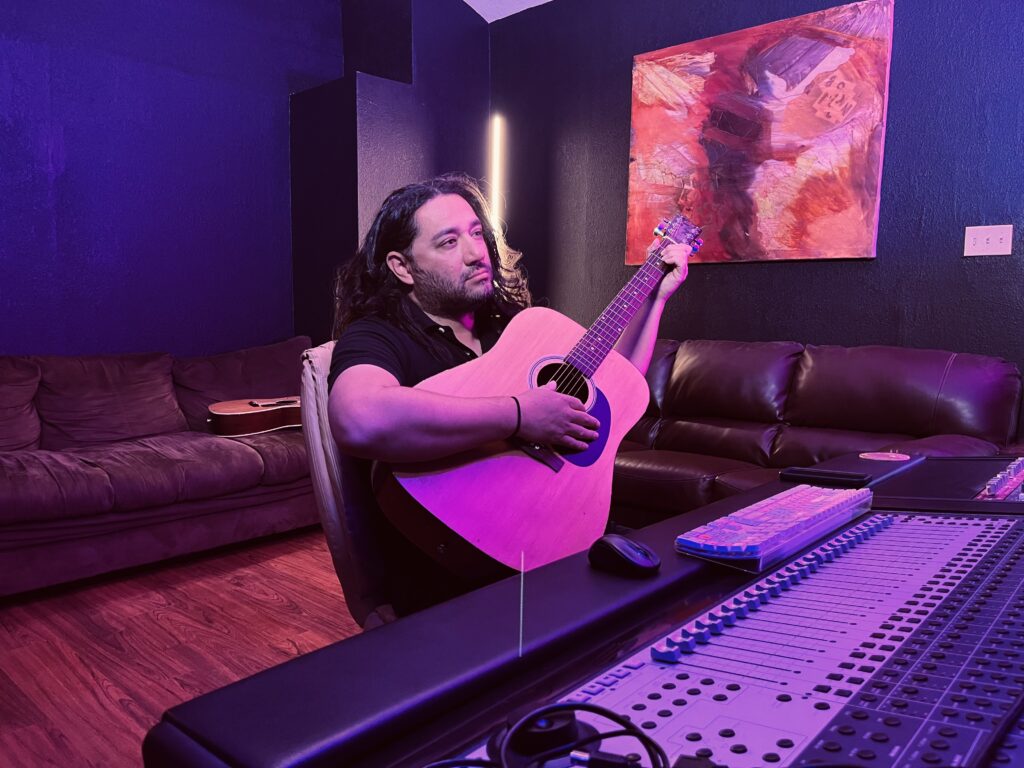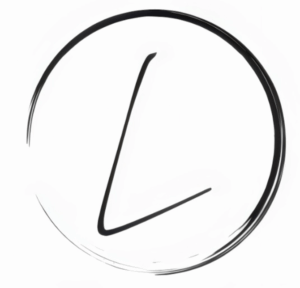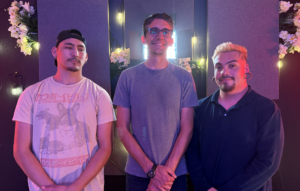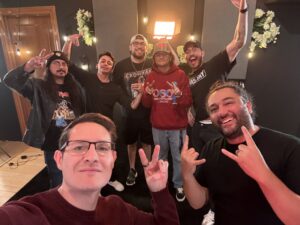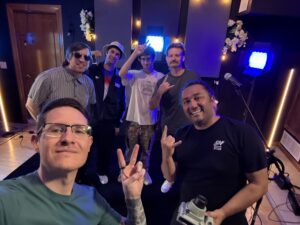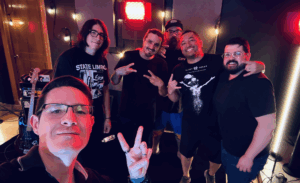When we were coming up with the idea of starting a blog, we really wanted to write about unique and interesting topics that hadn’t been covered before. Truthfully, it was hard because almost every topic has been covered and with AI, things just got worse. So we thought to ourselves, what would we have wanted to know when we were first starting out owning and operating a studio? This led us to creating topics where our experiences and opinions could shine and potentially help someone who is just starting out in the world of audio production.
One topic that came up immediately was all the mistakes we made when we first started this journey. If we could be honest with ourselves about how bad we fucked up at the beginning, maybe someone could learn from us and avoid some of the pitfalls we ran into when opening a recording studio in El Paso, TX.
With that said, based on our experiences, we’re going to deep dive into the mistakes we made along the way and what we would have done differently when we began our audio engineering careers almost 20 years ago. For those of you who are new to this world, get ready and strap in because it’s going to be one crazy ride filled with mistake after mistake. However, along the way, you’re going to have the time of your life and realize that being an audio engineer and running your own studio is one of the greatest adventures you can take in this life.
#1 – You Are Going to Suck (Hopefully Only at First)
I’m going to be perfectly honest. I’ve been doing this for almost 20 years now and I still don’t know what the fuck I’m doing. Okay, maybe I do a little. But the point is I’m still learning every day and working to improve my recording and mixing skills. Thinking back to some of those early years, I laugh out of embarrassment. I recently found an old laptop I used to use with a hard drive full of old sessions we did on Cubase. I couldn’t understand some of the mixing choices I was making or why I used a particular plugin.
Even if you research endlessly on YouTube, TikTok, or Instagram, you still won’t have any idea what you’re doing when it comes to setting up a session, mic positioning, tracking, or mixing/mastering. I used to get so frustrated when things weren’t coming out the way I wanted them to. So did the bands when they heard their subpar recordings.
My advice: keep going. Keep giving yourself every opportunity to practice. In audio engineering, experience is everything. No amount of tutorials or blogs will replace actual hands-on experience. When you’re first starting out, let bands know you’ll do their demo for free. Do as many demos as you can in the beginning. Don’t worry about making money. Worry about gaining the hands-on knowledge you need to improve your skills as an audio engineer.
#2 – DO NOT Switch Between DAWs in the Beginning
Learning a Digital Audio Workstation at first was like learning a new language. I remember launching Mixcraft for the first time because it came with the interface I bought, and just staring at the screen with no clue what to do next. The user interface was so confusing and overwhelming. That’s when I realized I was stepping into a world that could easily chew me up if I didn’t dedicate myself.
But I wanted to record my first demo so badly that I made the mistake of jumping from DAW to DAW, thinking if the pros used it, then I should too. What I didn’t realize was the pros use all sorts of DAWs and there really isn’t one “industry standard” anymore. I thought I needed Pro Tools, but then quickly realized my part-time job paying $8/hour wasn’t going to get me close to a rig. So began the DAW jumping—Mixcraft, Sony ACID, Steinberg Cubase, Nuendo, a shitty version of Pro Tools, then back to Nuendo—all within two years. I thought it was the DAW making my recordings sound like shit.
If I could go back and slap myself, I would tell myself to stop bouncing between DAWs and focus on the basics. Learn mic positioning. Learn EQ and compression. Learn what a healthy plugin chain looks like. It took years to realize all DAWs basically output the same sound. The DAW is not the missing piece in the search for audio perfection. Stick with whatever you have. Learn it inside and out. I promise you can get the sound in your head if you focus on the fundamentals first.
#3 – DO NOT Go Into Debt for Your Dream
This one’s going to sting. Even if you have the money to buy the best gear, you’re still going to suck. Sorry. This is why it’s so important not to over-invest, especially when you’re starting out. I made this mistake early on and boy did I pay for it, literally.
With credit cards already hitting younger people with insane interest rates, do not fall into the trap of thinking high-end gear will magically make you sound professional. It won’t. Please trust me. Most veteran engineers can go toe-to-toe with an amateur who has the best gear using just a few Shure 57s and a cheap preamp. Honestly, they’ll probably smoke you. I was stuck in a never-ending loop of spending money I didn’t have, thinking equipment was the problem. It wasn’t. It was my lack of experience and knowledge.
So learn the basics. Get as much experience as you can. Learn, then apply. Don’t just scroll through YouTube looking for tutorials you never use. In audio production, money will always be a problem because there’s just so much gear out there. Your budget will blow up fast if you overextend yourself.
#4 – Charging Too Soon (Money Isn’t the Goal)
Money is tricky. Most aspiring audio engineers want to produce amazing music and also make a living doing it. That balance is what we all strive for. But with the market oversaturated by home studios, you have to be careful.
When I started, I knew I wasn’t good enough to charge anyone. I knew if I did, I’d be falsely advertising services I couldn’t deliver. So I offered to record bands for free, and I was transparent about it. I told them to expect a crappy demo. And to my surprise, they were still down. Most bands were just excited someone wanted to record them. I did this for several years while building my skills and experience.
I started charging only when I had a real portfolio of work to show. I had proof of what I could do. That’s when I knew it was fair to ask for money.
My advice: start cheap. Build your reputation. With so many studios out there, artists have options. Pricing is a balancing act you’ll have to experiment with. Charge too much and you’ll have no clients. Charge too little and you’ll burn out.
#5 – Reputation Is Everything (Do Not Mess It Up)
Here’s something most people don’t realize: bands rarely come back to a studio just because of the product. They come back because of how you made them feel.
Was your space comfortable? Were you kind, patient, supportive? Did you offer water when they arrived, even if your studio’s in a bedroom? Did you deliver the mix on time? Did you answer your emails? These things matter.
Bands want to create in a place where they feel supported. Musicians are naturally critical of themselves and have fragile egos. They’re putting themselves out there for the world to judge. Be the person who makes that feel safe. That’s your job as a studio owner. Never forget it.
Conclusion
At the end of the day, running a studio is chaos and that’s exactly what makes it worth it. You’re going to screw things up, burn through gear, second-guess every mix, and wonder if you’re cut out for this. But if you stick with it, you’ll also build something real. Memories, friendships and music that outlives you. That’s the payoff. It’s not easy, it’s not glamorous, but it’s yours. And that makes every late night worth it! GFU!
